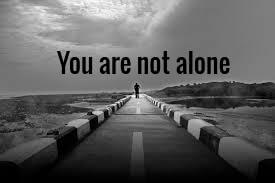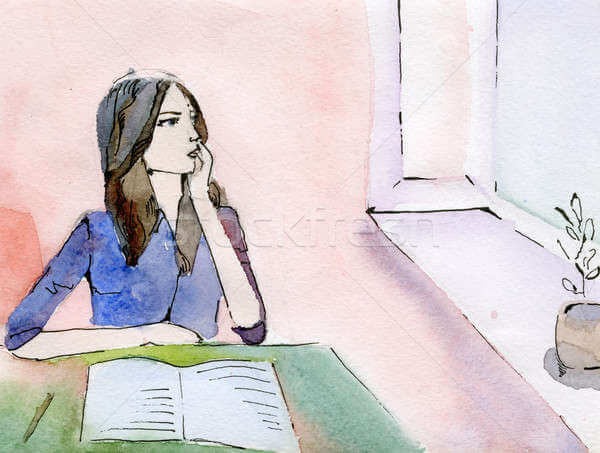An intriguing story about death, loneliness, grief, compassion and togetherness, in the times of pandemic, by Dr Nabanita. An exclusive for Different Truths.
Death, be not proud, though some have called thee
Mighty and dreadful, for thou art not so;
For those whom thou think’st thou dost overthrow
Die not, poor Death, nor yet canst thou kill me.
~ John Donne
Sheela, sitting by her window kept thinking of the numerous occasions when she had visited her friends and relatives in times of death in their families. There were multiple reasons to visit too — one would be immediately after getting the news, or to fulfil the ritual of giving hobisshi, a gift of fruits, rice, sweets etc to the bereaved family, then on the day of the shraddha, the last rites and finally for the matsyamukh or the day when the bereaved family finally breaks its abstinence from non-vegetarian food and fish re-enters their meal. She thought how each of these rituals meant a reason to give company to the family in mourning, how through these small social actions, grief was at least temporarily kept at bay, till it lost the sharpness of its claws. Only after almost a fortnight or so would the family finally be left alone, but even then some close relations would keep dropping by. Of course, this did not lessen the grief but in many ways, it made the burden easier to bear.
She thought of the time when her sister had lost her husband. She had made multiple trips to her place then, trying to be with the grieving family at every possible opportunity. She thought of the way her sister had hugged her, close and tight — as if by doing so she was trying to draw comfort in that terrible agony of a life without her partner.
She thought of the time when her sister had lost her husband. She had made multiple trips to her place then, trying to be with the grieving family at every possible opportunity. She thought of the way her sister had hugged her, close and tight — as if by doing so she was trying to draw comfort in that terrible agony of a life without her partner. That touch, the need to hold someone was so magical, so therapeutic. Sheela now realised how important that touch had been and how much they had taken all these things for granted.
Yet now, as she sits by the window in the middle of an unending reel of time, she craves for that touch, any touch, any hand of a friend or family to grasp, to derive some warmth from. But that remains a distant dream. Life suddenly has become as stark and as lonely as she could not even ever think of. There will be no visitations now. The first fortnight of death, which is a world so far away now, had meant company of loved ones, today means isolation – cold and real. The virus that had snatched her husband away has also raised a barrier around her, kept her away from any human company. Even her children, lodged in different countries, could not reach her. Time has become a movement in monotony and grief without respite. Each day, just a change in the calendar, a straight line like the last readings shown in her husband’s ICU monitor.
These days, this was her favourite spot — Lady of Shallot’s mirror to the outer world. A step beyond was a complete taboo. She felt contaminated and hence it was her penance, her two penny bit to save this world from the dreaded infection. From her window, she could see the passersby with their masked faces and purposeful strides. The road no longer held any scope for lazy rambling.
These thoughts kept moving in and out of her mind as she took her place by the window side. These days, this was her favourite spot — Lady of Shallot’s mirror to the outer world. A step beyond was a complete taboo. She felt contaminated and hence it was her penance, her two penny bit to save this world from the dreaded infection. From her window, she could see the passersby with their masked faces and purposeful strides. The road no longer held any scope for lazy rambling. Whoever walked did it with a sense of extreme urgency and compulsion. The road too had a trimmed down existence now, just like her.

Suddenly, she felt someone waving at her. Changing the direction of her vision, she saw Trisha, a college student and the daughter of one of her neighbours, waving at her. There was something that she was holding high above her head, with both her hands. Looking at it properly, she saw it was a handwritten placard — ‘you are not alone’ with a lot of hearts drawn on it. Slowly, a number of other neighbours gathered around Trisha, all waving and smiling at her. All had various messages written in chart papers and held overhead. One of them even urged her to switch on her phone — she had not charged her phone in the past few days, letting the battery die. It was a despondency coupled with an extreme depression that had sapped her desire to communicate with the world. It was as if she was in her way rejecting the world that she felt had rejected her. She had been so engrossed in her grief, that an extreme lethargy had overtaken her body.
Seeing so many smiling faces just below her window brought her the realisation that she was really not alone. For the first time, she reflected on the unreasonableness of her behaviour and how much it must have worried her children, far away and unable to reach. Emotions choked her and she could find tears welling up in her eyes.
Seeing so many smiling faces just below her window brought her the realisation that she was really not alone. For the first time, she reflected on the unreasonableness of her behaviour and how much it must have worried her children, far away and unable to reach. Emotions choked her and she could find tears welling up in her eyes. She could finally cry. Standing by the window, she shed unabashed tears, bidding a final goodbye to the departed soul yet at the same time reclaiming her own life that was slowly slipping past. She realised that come what may people will always find a way to show solidarity in spite of all possible bans on human contacts. And that is what will keep people like her going on, in spite of the strong urge to give up.
Photo from the Internet





 By
By
 By
By
 By
By
 By
By